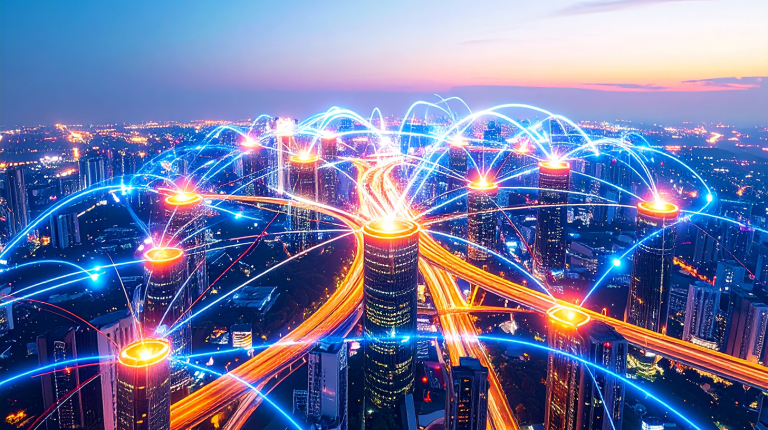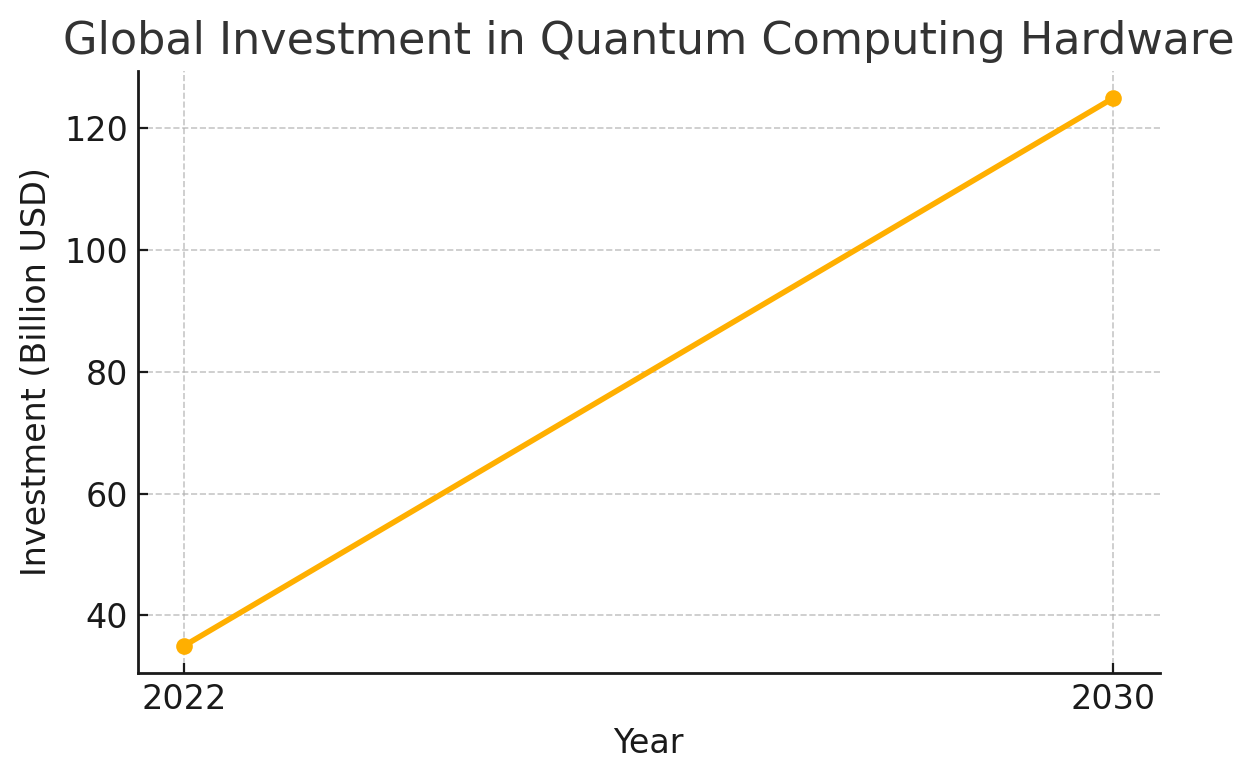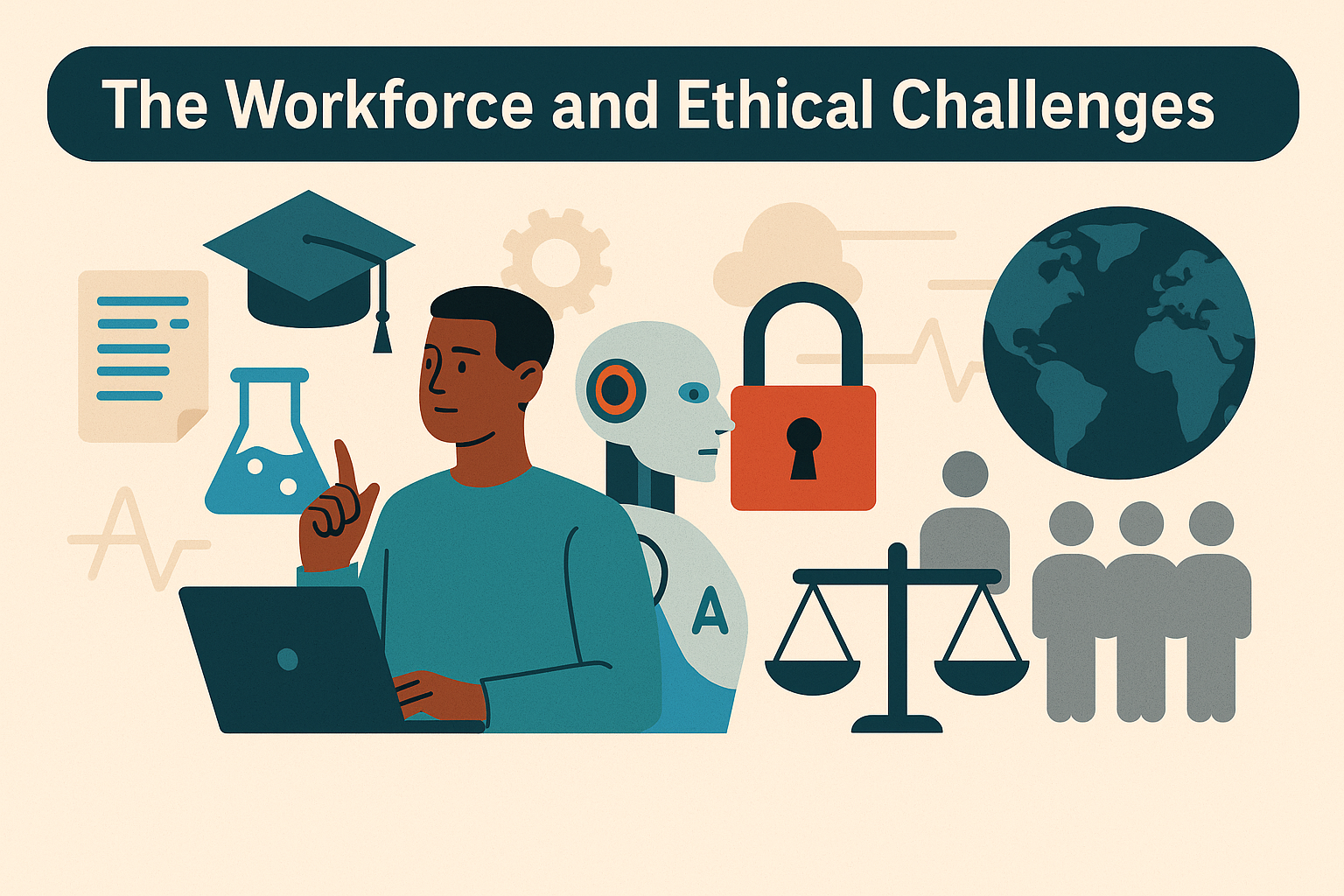Written by Jim McGwin, College of Business
The convergence of artificial intelligence (AI) and quantum computing is catalyzing a historic transformation: the Fourth Industrial Revolution (4IR), also known as the Intelligent Age. This era goes far beyond digitization. It signifies the fusion of physical, digital, and biological systems, accelerated by exponential advances in computing power and algorithmic intelligence. At the heart of this revolution lies the hybrid combination of classical AI computing and quantum technologies that promises to redefine every sector of industry and society.

4IR is not driven by any one innovation but by the integration of many. AI, robotics, Internet of Things (IoT), biotechnology, and quantum computing are forming robust cyber-physical systems. These platforms dissolve boundaries between digital software and real-world hardware. For example, AI-powered quantum algorithms can optimize supply chains or simulate molecular interactions at speeds unthinkable with classical machines. The outcome is not merely faster computation, but the ability to reimagine processes, products, and industries.
Unlike previous industrial revolutions, which took decades to mature, this one moves at an exponential rate. Thanks to AI’s adaptive learning and quantum processing scale, what once took years can now be executed in weeks. Posts across the web and social platforms reflect this rapid acceleration, particularly with recent breakthroughs like Google’s Willow chip and D-Wave’s advanced processors, both of which edge us closer to practical quantum applications.
Quantum computing’s strength lies in its ability to handle complexity. AI excels at finding patterns. Together, they form a force multiplier. Quantum machine learning (QML) has the potential to enable faster and more efficient training of AI models. AI, in turn, helps correct quantum computing errors and manage noisy systems. This convergence could unlock new capabilities in fields from drug discovery to logistics to climate modeling.
AI is now at the center of strategic decision-making. At Davos 2025, executives across various industries emphasized the need to integrate generative AI and predictive analytics into every workflow. In healthcare, AI-driven models are boosting diagnostic accuracy by up to 50%. In manufacturing, AI enhances efficiency while reducing costs and design bias.

Quantum computing is no longer hypothetical. With over $35 billion invested as of 2022 and projections of $125 billion by 2030, quantum hardware is fast approaching utility-grade performance. Key players, such as IBM and D-Wave, are delivering systems that tackle problems classical computers cannot, optimizing traffic routes, simulating materials, and enhancing cryptography.
AI and quantum technologies aren’t evolving in silos. AI optimizes quantum computing error correction, while quantum expands AI scalability, edging closer to Artificial General Intelligence (AGI). Semiconductors, cloud infrastructure, and blockchain are all intersecting to build a layered ecosystem of disruption.
Quantum-AI tools, such as Kvantify’s drug modeling platforms, drastically reduce R&D timelines. AI applications, such as those developed by DeepMind, can detect diseases with greater speed and accuracy. While some jobs may be displaced, new roles in quantum-AI integration are emerging.
- Finance Quantum computing’s potential to break encryption threatens existing systems but opens new frontiers in portfolio optimization and fraud detection. Financial institutions already leverage AI for risk modeling and algorithmic trading; quantum will further elevate these capabilities.
- Manufacturing and Supply Chains Generative AI designs complex systems, while quantum computing improves logistics and production efficiency. FedEx’s experimentation with QAOA-based routing optimization is a prime example of this trend. Traditional roles may shrink, but jobs in quantum literacy and AI-augmented design are expected to grow.
- Sustainability Quantum simulations are advancing renewable energy systems and materials science. AI already enables precision agriculture and resource optimization, and Colombia’s farms achieved 30% cost reductions using AI and IoT. Add quantum, and sustainability becomes more innovative and more scalable.
- Cybersecurity Quantum poses risks to current encryption methods but offers solutions too, like quantum key distribution (QKD). AI strengthens threat detection and response. Organizations must pivot fast to quantum-safe systems or face critical vulnerabilities.

The Workforce and Ethical Challenges
Some traditional roles are being eliminated, while new positions in AI ethics, quantum software, and hybrid system management are emerging. Workers who learn to innovate alongside machines, rather than being replaced by them, will thrive. Industry leaders like Sam Altman and Andrew Ng emphasize the importance of learning to utilize AI as a collaborator, rather than just a tool.
There is an urgent need to teach AI and quantum fluency across all education levels. AI skills (e.g., TensorFlow, generative tools) and quantum basics (e.g., Qiskit, linear algebra) must be integrated into curricula. Online platforms and micro-certifications are becoming increasingly crucial in democratizing access.
From privacy risks to the concentration of power among tech giants and nations, the ethical and political stakes are rising. Quantum’s ability to break encryption raises concerns about surveillance and weaponization. Transparent policies, open-source initiatives, and international cooperation are essential.
Looking Ahead
The Intelligent Age holds the promise of abundance, new cures, smarter cities, and climate solutions, but only if navigated wisely. As quantum and AI technologies evolve, they will reward creativity, collaboration, and discernment. The real challenge is not technological but human: Can we build the infrastructure, policies, and skills to keep pace? Can we avoid widening inequality while seizing shared opportunity?
“In the disruptive age of AI, where knowledge is free and abundant, human discernment and wisdom are essential for managing risk and reward, as well as creating and innovating. This is the true value people bring to every industry.”
